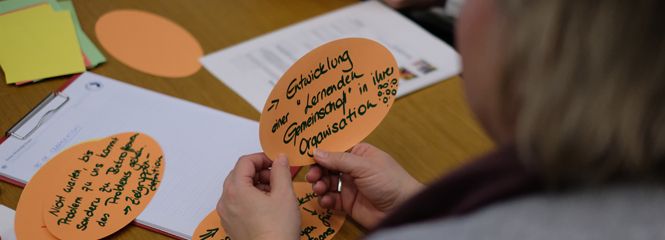Quelle: Roland W. Scholz / Quang Bao Le, Apendix Spotlight 2. In: R. W. Scholz, A. H. Roy, F. S. Brand, D. T. Hellums & A. E. Ulrich (Eds.), Sustainable phosphorus management: a global transdisciplinary roadmap. Berlin: Springer, pp 118-122.
„Transdisciplinarity (td) is a key term of the Global TraPs project. All activities of the project on all three levels of the project are transdisciplinary processes: the ‘Umbrella project’, the Nodes of the P supply chain including the Trade and Finance Node, as well as the case studies which are launched to better define or to close the knowledge gaps on sustainably P management. In this brief, we (1) provide a brief definition of td, (2) outline one of the twenty-five td case studies that have been successfully conducted at ETH NSSI since 1993; and (3) provide a ‘‘model’’ for a brief description of a planned td case study in Vietnam.
What is Transdisciplinarity
Transdisciplinarity is a third mode of doing science complementing disciplinarity and interdisciplinarity. It was developed during the last two decades in Europe and is now well accepted in the European academic community. Whereas interdisciplinarity means the integration of concepts and methods from different disciplines, td integrates additionally different epistemics (i. e., ways of knowing) from science/theory and practice/stakeholders.
Td starts from the assumption that scientists and practitioners are experts of different kinds of knowledge where both sides may benefit from a mutual learning process. Thus, co-leadership among science and practice based on equal footing on all levels of the project (i. e., the umbrella project, the nodes and the case studies) are needed to assure that the interests and capacities of theory and practice are equally acknowledged.
Transdisciplinary processes (td-processes) target the generation of knowledge for a sustainable transition of complex, societally relevant real-world problems. Td-processes include joint (1) problem definition, (2) problem representation and (3) preparation for sustainable transitions (see Scholz 2000). In general, td-processes provide an improved problem understanding and robust orientations on policy options or business decisions for the practitioners. Experts from science and practice benefit by getting in-depth insight into the dynamics of complex systems and mechanisms of sustainable transitions. (…)
A Successful Example: ‘‘Sustainable Future of Traditional Industries’’ in a Rural Pre-Alpine Area
Building partnership: Both, the president Hans Altherr of the small pre-alpine Swiss state Appenzell Ausserrhoden (AR), and ETH professor Roland W. Scholz, were interested in understanding mechanisms of sustaining traditional industries in rural regions. Jointly, they decided to run a transdisciplinary case study and to take co-leadership on equal footing for a td-process.
1. Joint problem definition: Key representatives (e. g., presidents of industry associations and unions as well as representatives of the communities) formed the steering board. A challenge was to negotiate and define the guiding question. It reads: What are the prerequisites for a sustainable regional economy meeting environmental and socioeconomic needs?
Further, three industries, i. e., textile, dairy and sawmilling industry, were selected for indepth understanding of key mechanisms of sustainable transitions. In addition a Knowledge Integration Group was built to identify communalities and specificities of the three industries.
2. Preparing for sustainable transitions: By means of a scientific method (i. e., formative scenario analysis), for each industry a set of different business strategies (including state, community, and multi-stakeholder activities) were constructed. These strategies were evaluated by the different stakeholder groups to gain insights into dissent and consent within and between them. Scientists analyzed these evaluations, compared them to a ‘‘data-based multi-criteria sustainability assessment,’’ and discussed the results with key stakeholders and further interested people. For each industry meaningful business options as well as related latent conflicts (between companies, economic and environmental impacts) were identified. Based on this, a process of mutual understanding was moderated so that consensus could be formed on many issues. The Knowledge Integration Group integrated these results and—together with the head officials of AR—identified potential policy options for the state. The results were published in a book targeting practitioners at regional and national level (Scholz et al. 2003).
3. Outcomes and follow-ups: The knowledge generated in the process was used by the practitioners involved in their daily business and policy decisions. Based on the AR-study, the Swiss textile industry launched a study to utilize the favorite strategy from the td-process for new business models (Scholz and Kaufmann 2003). Various concrete projects such as a new wastewater treatment plant for the textile industry, new cooperatives for the dairy industry and (cantonal) forest management followed the study. The study allowed for robust scientific publications on sustainable regional wood flows (Binder et al. 2004), business strategies of traditional industries (Scholz and Stauffacher 2007) or the methodology of trans-disciplinary case studies (Scholz et al. 2006)."





